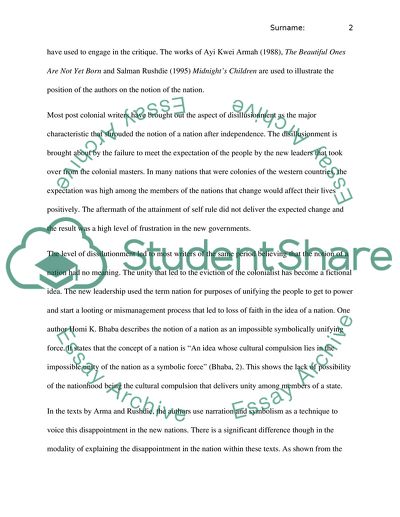Cite this document
(“1. How have postcolonial writers engaged with or critiqued the notion Essay”, n.d.)
1. How have postcolonial writers engaged with or critiqued the notion Essay. Retrieved from https://studentshare.org/literature/1695252-1-how-have-postcolonial-writers-engaged-with-or-critiqued-the-notion-of-the-nation-or-the-nature-of-the-state-discuss-with-reference-to-two-texts
1. How have postcolonial writers engaged with or critiqued the notion Essay. Retrieved from https://studentshare.org/literature/1695252-1-how-have-postcolonial-writers-engaged-with-or-critiqued-the-notion-of-the-nation-or-the-nature-of-the-state-discuss-with-reference-to-two-texts
(1. How Have Postcolonial Writers Engaged With or Critiqued the Notion Essay)
1. How Have Postcolonial Writers Engaged With or Critiqued the Notion Essay. https://studentshare.org/literature/1695252-1-how-have-postcolonial-writers-engaged-with-or-critiqued-the-notion-of-the-nation-or-the-nature-of-the-state-discuss-with-reference-to-two-texts.
1. How Have Postcolonial Writers Engaged With or Critiqued the Notion Essay. https://studentshare.org/literature/1695252-1-how-have-postcolonial-writers-engaged-with-or-critiqued-the-notion-of-the-nation-or-the-nature-of-the-state-discuss-with-reference-to-two-texts.
“1. How Have Postcolonial Writers Engaged With or Critiqued the Notion Essay”, n.d. https://studentshare.org/literature/1695252-1-how-have-postcolonial-writers-engaged-with-or-critiqued-the-notion-of-the-nation-or-the-nature-of-the-state-discuss-with-reference-to-two-texts.


